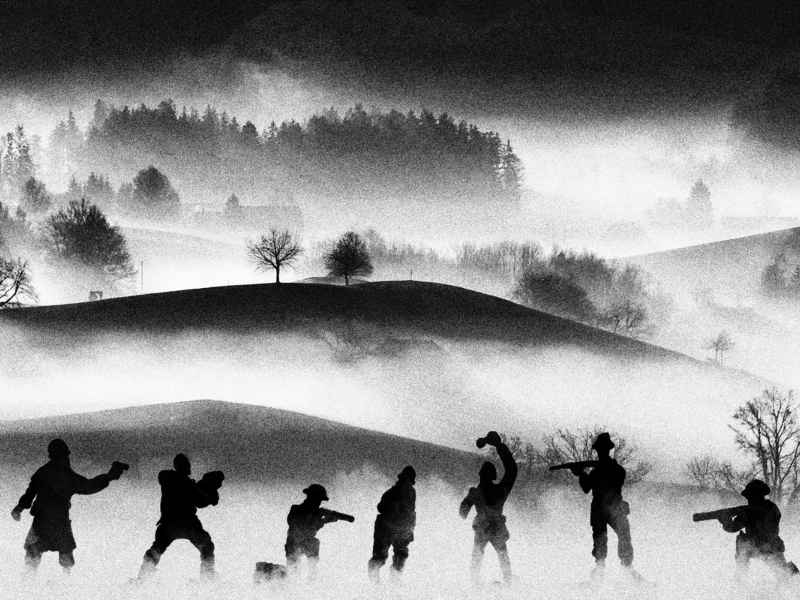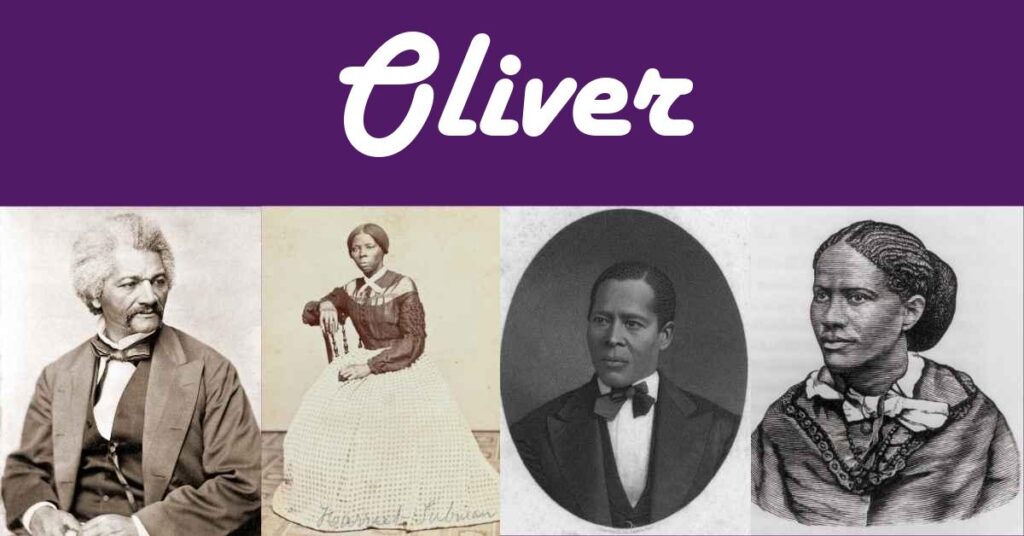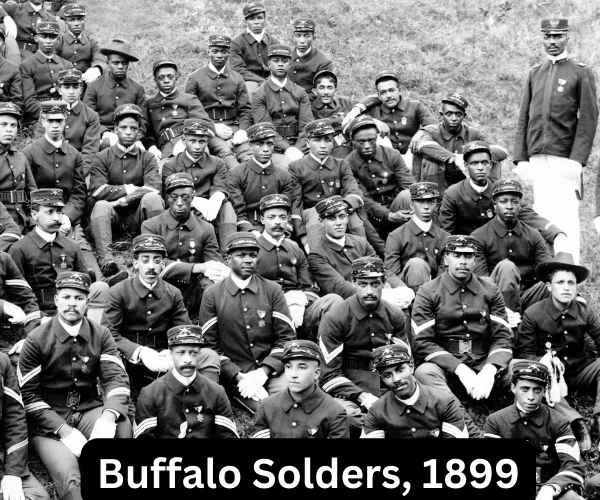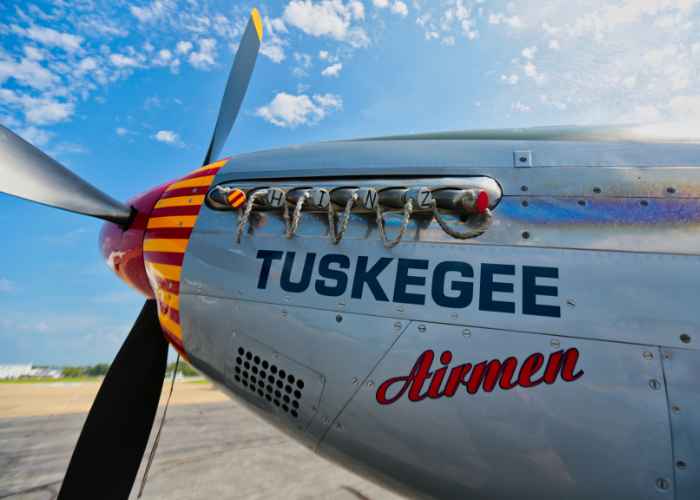The 2010 U.S. Census recorded 31,814 black Americans with Oliver as their last name. That represented 27% of the total of 115,900 entries.
This article tracks their numbers in the census since the Civil War. We also look at historic African American people named Oliver.
We end with a review of early records of black military service in the United States.
After The Civil War

The 1870 census was the first survey after the Civil War and the Emancipation Proclamation. In 1850 and 1860, only free African Americans were recorded in the census. The many enslaved were omitted.
From 1870 onward, all black Americans were included.
3,943 people named Oliver were recorded in the 1870 census as black and 567 as mixed.
There was a total of 19,359 people with the name.
Oliver In The 1900 And 1940 Census
The mixed category was dropped from the census in 1900, so we just need to look at the black numbers this time.
The 1900 census recorded 8,274 people with the last name Oliver as black within a total of 34,733 that year.
By the way, the mixed category returned in the 1910 and 1920 censuses. It was dropped again in 1930, but replaced with extra categories for colored and non-white in a way that seems confusing now.
This changed again in 1940 and we can simply focus on one black category.
The 1940 census recorded 13,550 people named Oliver as black within a total of 65,702.
Historic Black Figures With The Oliver Surname

Here are some notable African Americans in history with Oliver as their last name.
Jake Oliver
- Born: 1945
- From: Baltimore, Maryland
John Jacob (“Jake”) Oliver was born into a newspaper family in Baltimore. His great-grandfather John Henry Murphy was the founder of the Afro-American. Jake’s father, John Oliver, had supervised the printing presses at the newspaper.
Jake attended Fisk University in the late 1960s where he edited a student newspaper. He covered the Nashville student riots and the Black Power movement.
He seemed destined for the family newspaper, but Oliver went on to study law and practiced in New York for six years. He moved to Washington in 1978 where he was legal counsel for General Electric for four years.
Oliver finally returned to Baltimore in 1981 to become Vice President of the Afro-American. He was determined to automate some outdated operations. However, he fell out with some other family members over the direction of the newspaper.
He and his cousin, Frances Murphy Draper, took control of the company in 1985. Oliver pushed forward with automation and digitization. The Afro-American was one of the first U.S. national newspapers to have a digital edition.
Other black publishers
Here are some more early African American newspaper publishers:
Solomon Oliver
- Born: 1947
- From: Bessemer, Alabama
When Solomon Oliver finished an arts degree in 1969, he studied law at the New York University of Law where he qualified in 1972.
After spending three years as a college lecturer, he served as a clerk to William Hastie, the first African American federal judge. Oliver then spent twelve years as a professor of law at the Cleveland State College of Law.
President Clinton nominated him to the District Courts in 1994. He spent seven years as Chief Judge for the Northern District of Ohio.
Oliver In Black Military Records

Military records are a rich resource of information for family history research. Here are examples of the Oliver surname from different military services:
- Buffalo soldiers
- Black civil war sailors
- Tuskegee airmen
Buffalo Soldiers
Five regiments for black soldiers were formed during the Civil War. They were known as the Buffalo Soldiers.
Their records are part of the national archive of military monthly returns. The information includes the year and place of birth, where they enlisted, their occupation, and their height.
One of the earliest military entries for Oliver was in October 1898. Arthur Oliver was a Private in the U.S. Ninth Cavalry. He was stationed in October 1898 at Montauk Point, New York.
One of the later entries was in April 1913. William H. Oliver was a Trumpeter in the U.S. Ninth Cavalry.
If you are researching military ancestors, there is a free index of these records on Ancestry.com and FamilySearch.org.
You have to create an account on either website, but you do not need to pay for the Buffalo Soldiers archive.
Black Civil War Sailors
The National Parks Service has a free archive of African American sailors during the Civil War.
The information includes their age, height, rank, occupation, and where and when they enlisted. It also includes every ship that they served on.
You can search the database on the National Parks website.
Richard Oliver
One of the earliest entries for Oliver was for Richard Oliver from Petersburg, Virginia. He enlisted in May 6 1861 at New Bedford when he was aged 23.
The record shows that Richard was assigned on January 1 1864 to the ship Pembina.
His occupation before enlisting was as a Barber. His naval rank was Landsman.
“Landsman” was the lowest rank at the time and was given to recruits with little sea experience.
James Oliver
One of the later entries was for a sailor who enlisted at Cincinnati in June 14 1864. James was aged 31 and was from Boone Co., Kentucky.
He was assigned to the ship Red Rover on July 31 1865.
His occupation before enlisting was as a Cook. His naval rank was Seaman.
A seaman in the Navy is a sailor who is not an officer.
Tuskegee Airmen

The Tuskegee Airmen were military personnel who served at the Tuskegee Army Airfield or related programs.
Nearly one thousand black pilots graduated from the Tuskegee Institute. They flew single-engine fighter planes or twin-engine bombers. 352 fought in combat.
Luther Oliver graduated from the Tuskegee Institute in March 1945. He qualified as a bomber pilot. Luther was from Montgomery, Alabama.